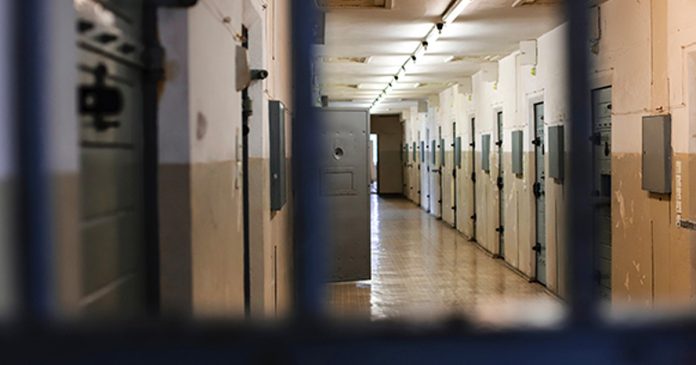Biological men who identify as women are now officially allowed to transfer into women’s correctional institutions if they request to do so.
The Correctional Service of Canada (CSC) made the policy clear in a directive from the Commissioner on Wednesday that the transfers would take place regardless of the inmate’s anatomical sex.
The document – Commissioner’s Directive 100 Gender Diverse Offenders – lays out the transfer process and also mandates gender diversity training to staff and correctional officers.
“After completing the intake assessment process, offenders will be placed according to their gender identity or expression in a men’s or a women’s institution, if that is their preference, regardless of their sex (i.e., anatomy) or the gender/sex marker on their identification documents,” the directive states.
“In the event there are overriding health or safety concerns that cannot be resolved, the offender will be placed in a site that better aligns with their current sex (i.e., anatomy).”
According to the document, male inmates who wish to be housed in a women’s prison will undergo an assessment process that includes an interview with a staff member from the receiving site.
The Assistant Commissioner for Correctional Operations and Programs as well as the Deputy Commissioner for Women will reportedly have the final say on whether the request by the inmate gets approved.
Women’s rights activists have blasted the decision as a threat to the safety and dignity of female inmates.
True North spoke to former federal prisoner and spokesperson for Canadian Women’s Sex-Based Rights (caWsbar) Heather Mason, who said that as a consequence of the transfers, female prisoners will have to deal with increased security as a result of the presence of more aggressive and violent biological men.
“We have less security measures,” said Mason. “We don’t have weapons. We have one eight-foot fence. We don’t have guard towers.”
“There’s a high proportion of males in maximum security looking to transfer so this is going to impact Indigenous women the most. As you know, 50% of our prison population are Indigenous and also approximately 50% of the women in maximum security are Indigneous.”
According to Mason, due to the fact that “men are more aggressive and violent” housing them with women will likely “lead to guards protesting, wanting increased security measures.”
Other new gender-identity measures include being allowed access to private showers or toilets “to ensure safety and privacy.”
Staff will now also be required to undergo mandatory “training on gender identity and expression” while the CSC will also pursue engagement with “gender diversity advocacy groups, when developing and updating staff training material.”
The policy is a crystallization of what has been taking place for some time, as biological men who identify as women have been allowed into women’s prisons since 2017. That year, Prime Minister Justin Trudeau pledged his government would house transgender inmates based on gender identity.
“I will make sure we look at it and we address it and we do right in recognizing that trans rights are human rights and we need to make sure we are defending everyone’s dignity and rights in every way we can,” said Trudeau at the time.
Soon after the CSC adopted an interim policy to place inmates in the prison of their choice “regardless of their anatomy (sex) or gender on their identification documents, unless there are overriding health or safety concerns which cannot be resolved.”
Mason blamed the policy and its shortsightedness squarely on Trudeau.
“They originally released a policy that would still transfer based on sex, except they changed the requirements for gender reassignment surgery, but then it was Justin Trudeau himself at the town hall meeting who was like ‘Oh I never thought about that, we’ll change it.’ So it definitely was a Liberal Justin Trudeau thing,” she told True North.
Mason also said that inmates are struggling with the new directives and frustrated with the lack of action from guards and administrators who are too afraid to go after transgender inmates for bad behaviour.
“They say that the trans prisoners are untouchable,” she said. ”That they control everything and that Corrections is scared to discipline them because they’re scared of being sued since trans prisoners are threatening Canadian human rights claims against them.”
On Mar. 26, a Parole Board of Canada (PBC) decision confirmed a female prisoner’s report that she was repeatedly sexually assaulted by a biological male housed in the Grand Valley Institution for Women in Kitchener, Ontario.
Steve (Sam) Melenbacher was charged with sexual assault over the incident.
The PBC report notes that a female prisoner reported that Mehlenbacher has “created a trail of victims, many of whom have been terrorized” by him.

